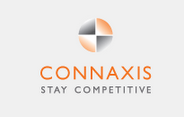Goods are generally sold online at a 21 % discount relative to bricks-and-mortar stores!
May 12th, 2010. Clicks trump bricks. After a slow start, internet shopping explodes in China. From The Economist print edition.
Goods are generally sold online at an even greater discount relative to bricks-and-mortar stores in China than elsewhere: a survey by Credit Suisse revealed an average discount of 21%.
A WOMAN living in Shanghai takes a long time to list all the items she has bought online in recent months: an iPod, a blender, a lamp, a rice cooker, a mobile phone, credit for it, a coffee-maker, coffee to put in it, Levi’s jeans (both real and counterfeit), underwear, paper, milk, snacks, toilet paper, butter, shampoo, DVDs and even some pretty orange fish for her aquarium. She also bought a few electric bicycles online and resold them at a profit to Americans via eBay, but has had to scrap this sideline thanks to stiff competition from other online entrepreneurs. Consumers in some places (notably America) have been slow to use the internet to make everyday purchases such as groceries. But in China the low cost of delivery and the high cost of property are feeding an e-tailing frenzy.
Online retailing had lagged in China, thanks both to a relative scarcity of internet access and the lack of a trusted payment system for e-commerce. Financial regulators had no intention of allowing non-Chinese systems like PayPal to enter the market until strong domestic companies had established themselves. But both of these issues have now been resolved. Computers, internet cafés and web-browsing mobile phones have become ubiquitous. A local firm, Alibaba, has come up both with a popular electronic trading platform, Taobao, and an electronic payment system, Alipay (in addition to its business-to-business exchange, which is listed in Hong Kong).
With the building blocks in place, the growth of both formal e-tailing and the more informal sort of online entrepreneurship has been stunning (see chart). As elsewhere, customers have been quick to buy clothing and consumer electronics online. But many other goods are also increasingly bought via the internet. Nielsen, a consumer-research firm, says that two-thirds of Chinese households with internet connections bought an everyday item online in the past six months, and half of all wired households with babies have bought nappies or formula online. Surveys suggest that more than 10% of baby gear is now sold online, along with a growing share of cosmetics. The most common item Unilever sells through Taobao is Lipton’s tea; the consumer-goods firm cleverly matches offline advertising campaigns to online promotions. In other markets, all of these products are typically bought in shops.
Goods are generally sold online at an even greater discount relative to bricks-and-mortar stores in China than elsewhere: a survey by Credit Suisse revealed an average discount of 21%. That is partly thanks to competition, as Chinese entrepreneurs have rushed to set up websites to exploit any pricing inefficiency. Equally important, delivery costs next to nothing. For five yuan ($0.73) swarms of scooter drivers are willing to deliver almost anything to anyone in Shanghai and many other cities in less than an hour, although how they make a decent return on their frenetic efforts is a mystery. Alternatively, distribution is sometimes done through warehouses that frequently relocate, thus taking advantage of temporary deals and avoiding the costs that come with China’s arcane, overheated and often corrupt property market.
Aside from shoppers, who get better prices and more convenience, the biggest beneficiaries of this shift are products that have well-known, trusted brands, since these are the easiest to peddle online. That has been a huge boost for Western firms, which have otherwise often found themselves at a disadvantage in the Chinese market. They continue to sell through big retailers too, but most of those are also scrambling to add online capacity.
Awkwardly, this leaves retailers selling the same product at different prices online and in their stores. Gome and Suning, the two biggest electronics chains, offer discounts online. Clever buyers visit a branch to take a look, and then order via the internet. The cannibalisation of higher-margin sales must be painful, but the reasoning is easy to understand: if the retailers do not undercut themselves, thousands of resourceful web-surfers will.
About Connaxis
Connaxis makes and manages web application. We do this better than other companies through the synergy of our four business units: creative, development, Internet marketing and support. In Buenos Aires, Argentina we have access to highly skilled local and international professionals at a relatively low cost. It is the synergy that counts!
For more information on Connaxis, please visit our corporate website: www.connaxis.com. To view examples of our work please visit our portfolio website: www.creative-outsourcing.com. Call us on NL: +31208080017 US: +16468108783 ARG: +541152465987 or mail us at contact@connaxis.com.


1 comment:
Great blog!
Thanks for sharing.
Tenax Technologies is a Belarussian software company delivering complex web solutions. We provide comprehensive software development for startups based on Java J2EE Spring Hibernate web2.0 technologies.
Post a Comment